10 Philly Transwomen Who Made H istory [Billy Penn]
istory [Billy Penn]
Clockwise from top left: Nizah Morris, Naiymah Sanchez, Dawn Munro, Charlene Arcila, Hazel Edwards, Kathleen Padilla.
This list highlights women who’ve achieved a long list of accomplishments, only a few of which are related here. Philadelphia’s trans community continues to produce tireless champions who work full-time jobs, serve on several boards and make a point to nurture other trans people in their spare time. The history of transwomen in Philly is filled with examples of this, and their legacy stands clear even though this history has been deeply under-reported.
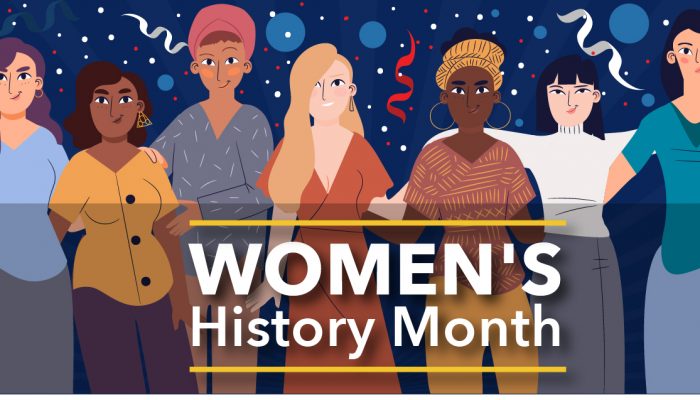 Celebrate Women's History Month! [City of Philadelphia, 2022]
Celebrate Women's History Month! [City of Philadelphia, 2022]
This March, join the City of Philadelphia and citywide community partners for a month-long celebration of Women’s History! Our round-up includes webinars, virtual conferences, storytelling events and so much more. We can’t wait to see you!
Are you participating in a Women’s History Month event? Tag your tweets and Instagram posts using #WHMPHL!
“Know what sparks the light in you so that you, in your own way, can illuminate the world.” — Oprah Winfrey
Celebrating Women’s Grassroots Community Activism by Dr. Karen Bojar [Philly Now]
Feminist activists and historians have long advocated for the recognition of women’s unpaid labor. Wages for Housework, an international movement founded in 1974, demanded that women’s domestic labor be recognized and compensated.
Economist Nina Banks takes the concept a step further, arguing that the unpaid community activism performed by women in marginalized communities has economic value. Regarding Black Women, Dr. Banks told a New York Times reporter: “ Not only are we doing paid work for our communities and unpaid work in our households… We are also doing a third layer of community work — we’re exhausted. Recognizing this collective activism as work reveals the extra burden Black and brown women are under.”
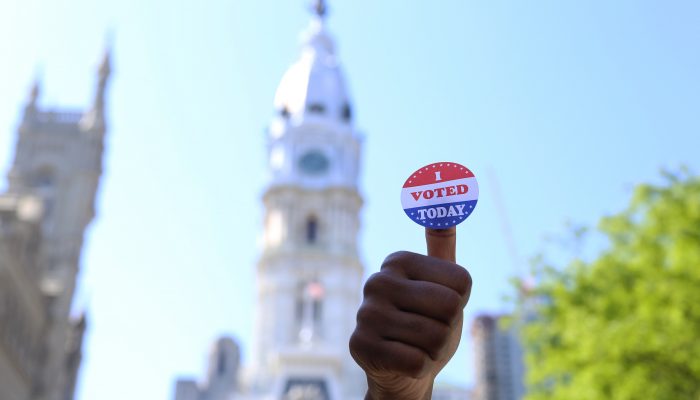 The Long March to the White House by Jovida Hill [City of Philadelphia, blog post dated Nov. 16, 2002 written by Jovida Hill, Executive Director, Mayor’s Office of Engagement for Women]
The Long March to the White House by Jovida Hill [City of Philadelphia, blog post dated Nov. 16, 2002 written by Jovida Hill, Executive Director, Mayor’s Office of Engagement for Women]
“I have been waiting to exhale for four years. I have been waiting my entire life for a woman to be elevated to the highest office in the nation. I have been waiting to catch my breath after a 2016 stomach punch so painful I cried for days. No antacid could cure the nauseous feeling in my stomach. Over the past four years, we have endured a relentless stream of racist, sexist, misogynist, hateful and divisive comments coming from some of the top leaders—including the top leader—of our country. The news of a Biden-Harris historic victory allowed us to once again take in a fresh breath of hope.”
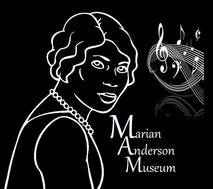 The Marian Anderson Residence Museum: A Philadelphia and National Treasure
The Marian Anderson Residence Museum: A Philadelphia and National Treasure
The Marian Anderson Historical Residence Museum is the Epi-Center for the Life and Legacy of Marian Anderson. The understated exterior of the 19th century, 3-story Marian Anderson House at 762 South Martin Street (Marian Anderson Way- in-between 19th &20th & Fitzwater Street in Center City West Rittenhouse Square District ) bears a plaque from the Philadelphia Historical Commission. Declared a Historic Landmark by the state of Pennsylvania & The Marian Anderson Residence Museum has been placed on the National Register Of Historic Places by the United States Department of the Interior.
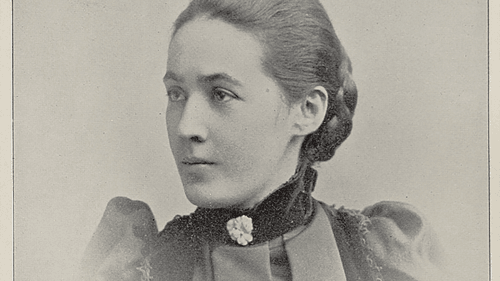 University of Pennsylvania presents Minerva Parker Nichols: The Search for a Forgotten Architect
University of Pennsylvania presents Minerva Parker Nichols: The Search for a Forgotten Architect
The New Century Club was where influential Philadelphia women developed a civic presence and political voice, where they changed ideas about what women could be, do, and achieve. Fittingly, their 124 South 12th Street headquarters was designed by the first woman in the United States to establish an independent architectural practice: Minerva Parker Nichols (1862-1949). The stately building disappeared decades ago, and its architect would have suffered the same fate, save for a diligent architectural historian, whose exhibit Minerva Parker Nichols: The Search for a Forgotten Architect, is on view at the University of Pennsylvania Architectural Archives.
 Notable women in Philly history you might not know — but definitely should [Billy Penn]
Notable women in Philly history you might not know — but definitely should [Billy Penn]
It’s no secret Philadelphia is full of history, or that women have been very much a part of it. Throughout the eras, great names ring, from Betsy Ross and Harriet Tubman to Marian Anderson and Grace Kelly. And there are lots more who’ve made their mark — but aren’t quite household names.
Billy Penn provides a look at the lives of six notable women who spent time in Philadelphia over the past 200 years, including two abolitionists, a scientist, an artist, an athlete, and an activist, whose legacies will live on in Philadelphia lore.
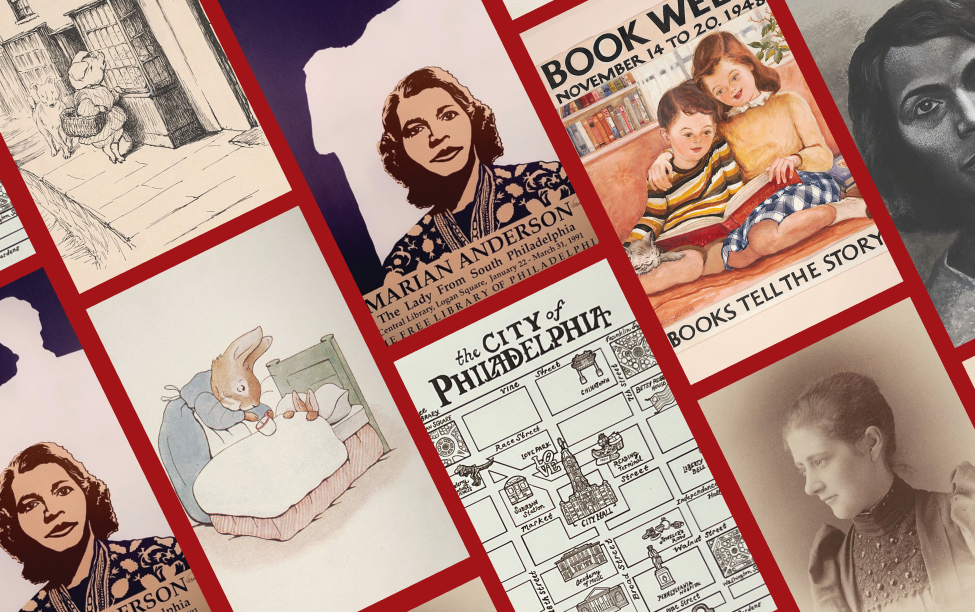 Celebrate Women’s History Month with the Free Library!
Celebrate Women’s History Month with the Free Library!
Women's History Month as we know it today began as a celebration of Women's History Week. It was only in 1987, with the persistent petitioning of the National Women's History Project, that Congress would pass Pub. L. 100-9 and declare the entire month of March to be Women's History Month. Starting in 1995, presidents joined this practice and began issuing official proclamations of March as Women's History Month.
This year, we'll be commemorating Women's History Month by highlighting just a few of the many remarkable women featured in our collections, from Beatrix Potter to Marian Anderson, so stay tuned to our social media over the coming weeks! We'll also be sharing special book lists and reading recommendations, as well as deep dives into past and upcoming Author Events conversations, ideas for how families can participate, and much more. Be sure to check out our event calendar as well, for details on ways to celebrate and learn at a library near you.
The Philadelphia Citizen Celebrates Women’s History Month
A governor. The world’s first computer programmers. Lawyers, doctors, writers, artists and activists. Philadelphia’s history is full of incredible, history-making women whose stories, unfortunately, are often all but missing from the history books.
It shouldn’t take a dedicated month—Women’s History Month—to recognize the contributions of these heroines. But in honor of the occasion, we scoured history to find several badass Philly women to celebrate for our Women’s History Month All-Stars.
 Philly Asians 4 Liberation and Mutual Solidarity (PA4LMS)
Philly Asians 4 Liberation and Mutual Solidarity (PA4LMS)
Philly Asians 4 Liberation & Mutual Solidarity is a group of queer Asian artists and activists living in occupied Lenni Lenape territory known today as Philadelphia. Formed emergently during the George Floyd protests in 2020, our group started out as a loose collective of friends interested in reflecting together and learning how to be better accomplices in the struggle for Black liberation. We began serving homemade food as a form of care at protests and providing mutual aid. We are committed to deepening our solidarity with Black and Brown comrades fighting for abolition and racial and economic justice. Remaining agile and responsive to community needs, we see our work as evolving and shape-shifting, engaging in mutual aid, direct action, political education, and more.
They Carried Us: The Social Impact of Philadelphia's Black Women Leaders
Historical research and original interviews of contemporary women squarely place Philadelphia’s Black women on centerstage. Their power comes not just from what they did as individuals, but from how their efforts created a community of women that spanned geographies, sectors, and time.
These are the stories of the Black women in one of the country’s most important cities, who let no obstacle deter them from changing the game. and shaping the city in significant ways.
WOMEN'S WAY: Connects, Empowers, Invests
WOMEN'S WAY is the Greater Philadelphia region’s leading nonprofit organization dedicated to the advancement of women, girls, and gender and racial equity. For over 44 years, WOMEN’S WAY has been inspiring, mobilizing, and uniting organizations, generations, and individuals to cultivate high-impact philanthropy across the Greater Philadelphia region to accomplish gender equity for all.
